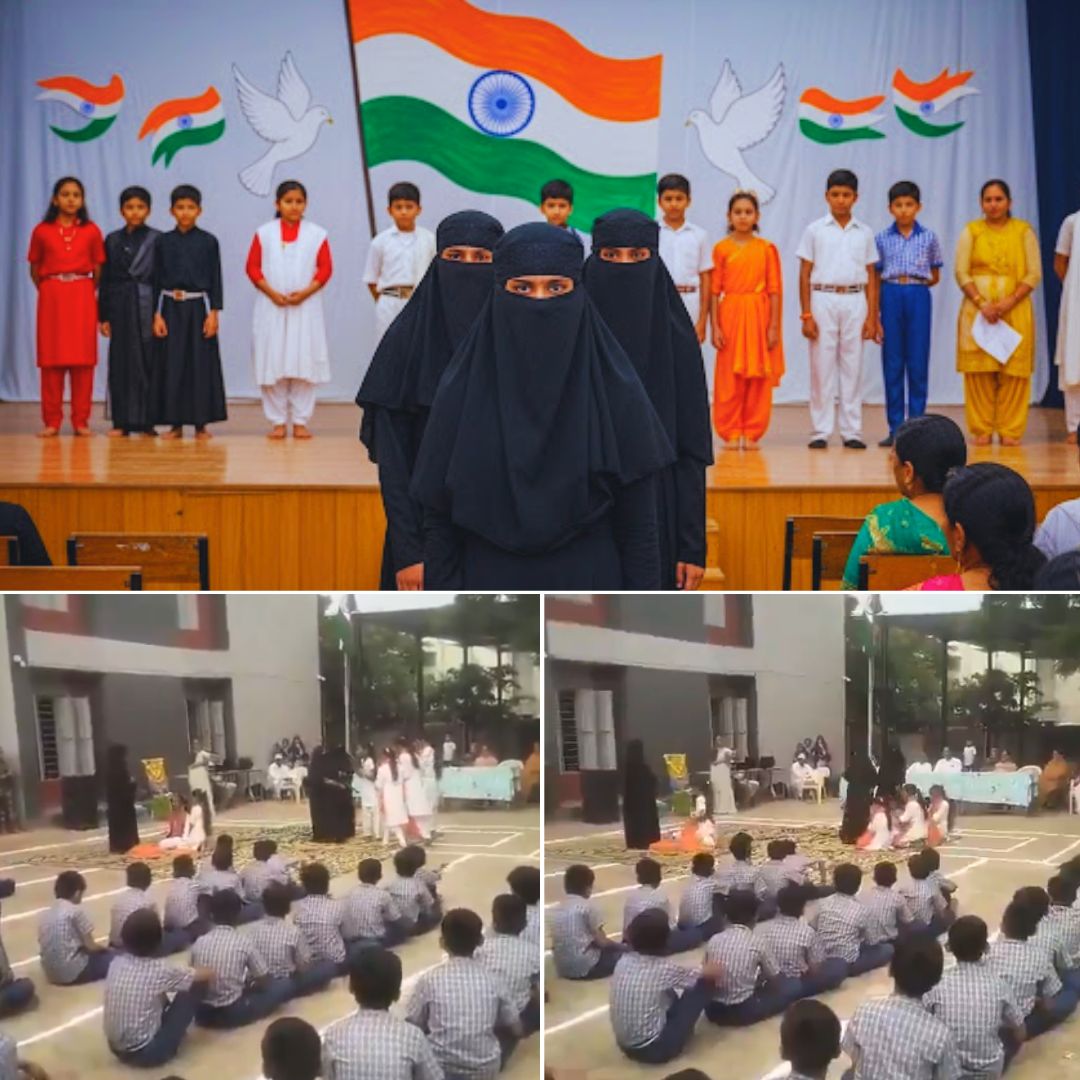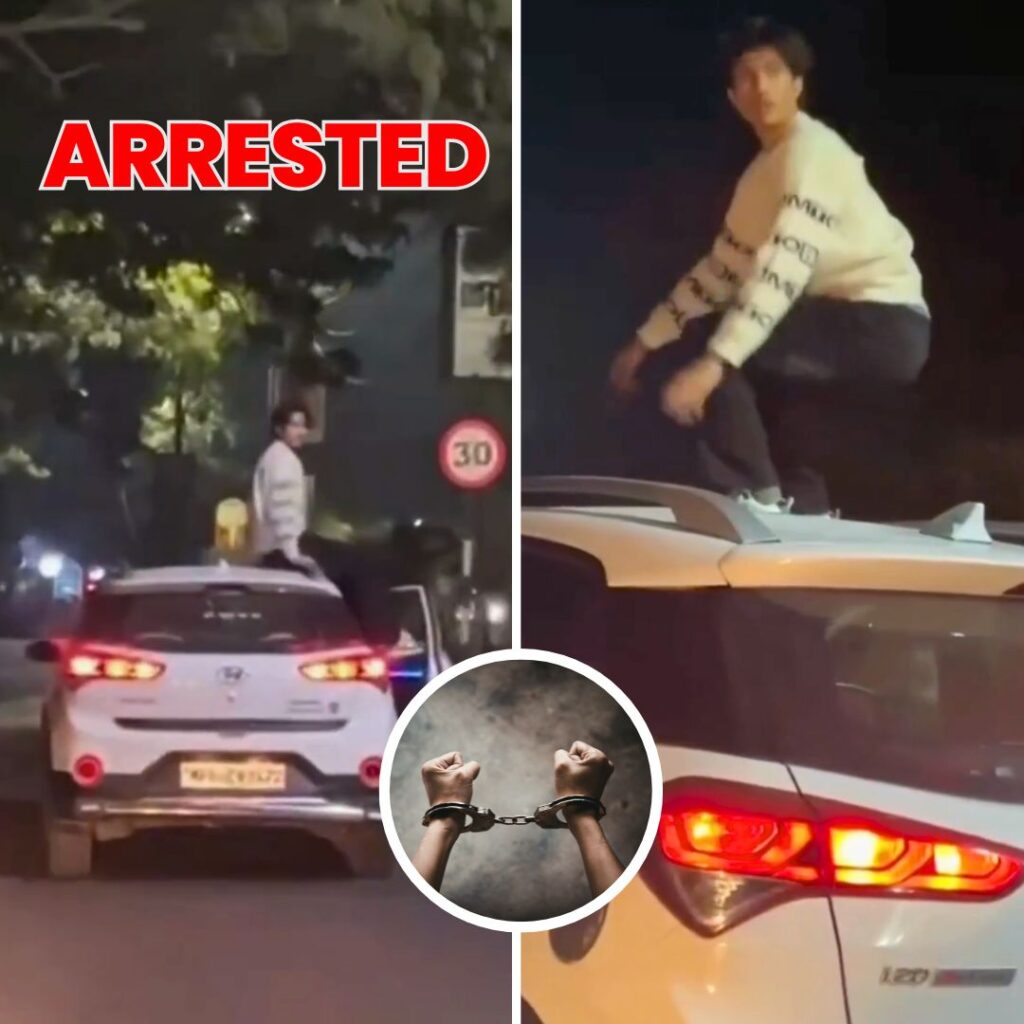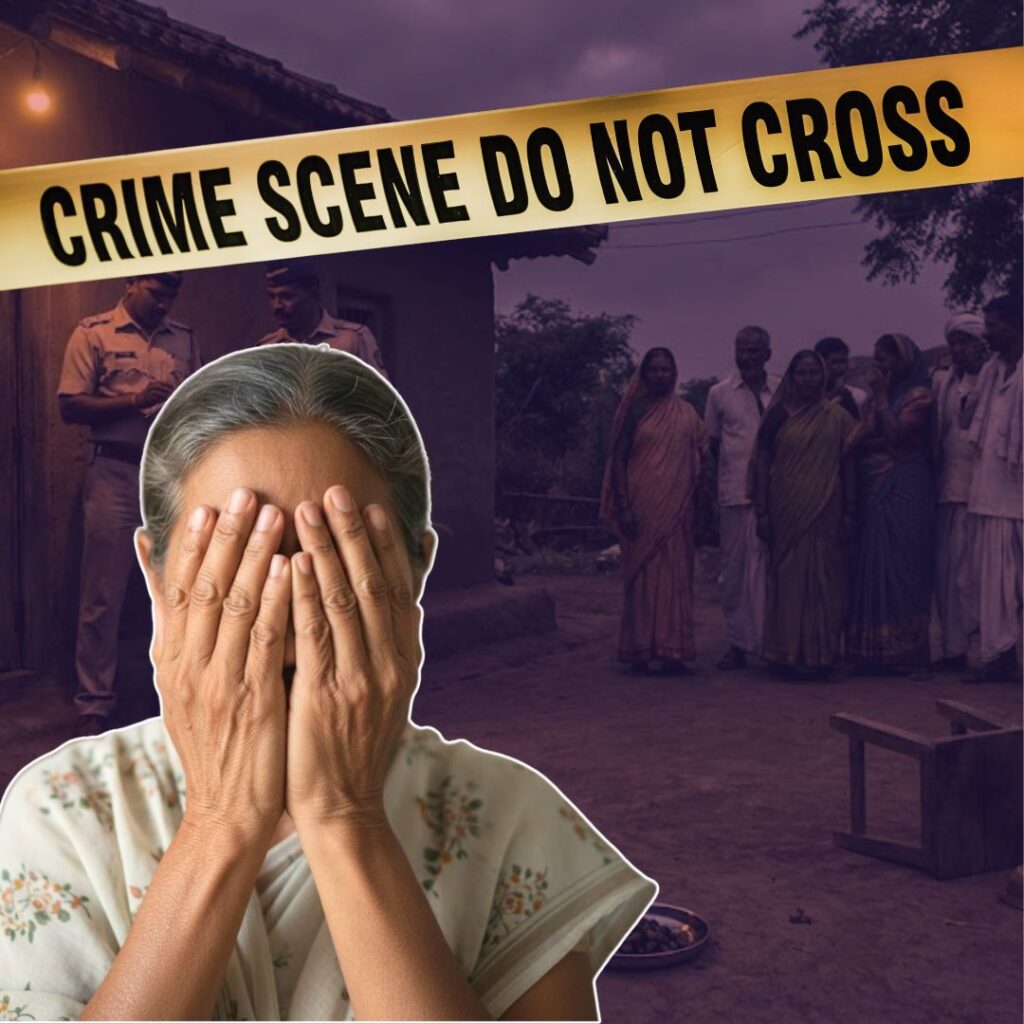A school play staged during Independence Day celebrations at Kumbharwada School in Bhavnagar, Gujarat, has triggered widespread controversy after videos showing students dressed as terrorists in burqas attacking classmates wearing the Indian tricolour went viral. The play was inspired by real-life attacks in Kashmir. Public outrage followed swiftly, accusing the performance of communal insensitivity and stereotyping.
Authorities have launched a formal inquiry and may take disciplinary action against the school’s principal and teachers. The school maintains the play’s purpose was to promote patriotism and respect for the armed forces. Officials urge calm as investigations continue.
The Play That Sparked Anger
On August 15, schoolchildren from Kumbharwada’s Kanya Vidyalaya performed a play depicting scenes inspired by the Pahalgam massacre and Operation Sindoor-events related to terrorism in Kashmir. The most controversial moments involve girl students dressed in burqas, portraying terrorists attacking peers draped in the tricolour, symbolising innocent Kashmiris.
The video rapidly spread on social media platforms, leading to sharp criticism by parents, activists, and citizens who felt the portrayal was deeply hurtful and prone to communal stereotyping. The depiction of terrorists in burqas drew particular ire for reinforcing harmful associations and stigmas against Muslim women.
In response, Principal Rajendra Dave stated that the intent was to instil a sense of patriotism and honour the sacrifices of India’s armed forces. He explained that students assigned terrorist roles were initially asked to wear black attire, but some reportedly chose to wear burqas, which was not the school’s directive. “Our focus was on educating students about the sacrifices behind Independence Day.
There was no intention to target any religion or community,” he said. Nevertheless, the Bhavnagar Municipal Corporation’s Primary Education Committee confirmed receiving complaints and said a formal inquiry would decide if disciplinary measures are warranted.
Historic Sensitivities and Educational Responsibilities
This controversy adds to a growing number of incidents where school cultural programmes have sparked public debate due to their sensitive or politically charged content. National celebrations often serve as moments for schools to showcase creative expressions of patriotism, but the challenge lies in handling history and current affairs with nuance and care. Experts emphasise that portraying violent or politically sensitive events should be age-appropriate and avoid demonising any community to prevent sowing division among young learners.
The particular use of burqas to depict terrorists is seen by many as reinforcing negative stereotypes that unfairly target Muslim women and the community as a whole. Critics argue that educators and event organisers should be more vigilant and sensitive in designing performances to foster unity and understanding. While some social media voices defend artistic freedom and insist on the school’s right to teach patriotism using dramatization, others demand government regulations to avoid communal bias in school events. This debate underscores the ongoing tension in Indian society about reconciling freedom of expression with the need for communal harmony.
The Logical Indian’s Perspective
The classroom is a vital space where the values of empathy, unity, and respect for diversity should be nurtured carefully and deliberately. While it is important for children to learn about their country’s struggles and the sacrifices of its defenders, such education must be delivered in a way that uplifts rather than divides.
We believe education and cultural programmes must prioritise creating inclusive narratives that celebrate India’s pluralism and promote peaceful coexistence. Teachers and organisers have a responsibility to ensure their messages do not unintentionally alienate or stereotype any group.











